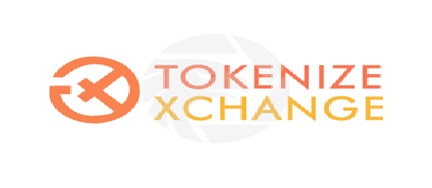Binance has launched a new Sharia investment multi token staking product called Sharia Earn. As per Binance this is the first Sharia compliant multi token staking product. It is build on Binance’s Earn core products that include BNB locked products, ETH staking and SOL staking.
As per the announcement, with over 280 million users worldwide, Binance is committed to building products that serve the diverse needs of their global community. the announcement notes, “We’re proud to answer the call for faith-aligned crypto solutions because we believe the future of finance should be inclusive by design. And now, thanks to Sharia Earn, users can grow their crypto while staying true to Islamic finance principles.”
While conventional staking products follow standard financial models, Sharia Earn is uniquely structured to align with the core tenets of Islamic finance. Certified by Amanie Advisors, a globally respected Sharia advisory firm, users’ assets are carefully managed in full accordance with Islamic finance principles, in particular such as no interest (riba), no excessive uncertainty (gharar), no exposure to haram sectors like alcohol, gambling, or adult content.
Users can also view the Sharia Compliance Certificate for Sharia Compliant Earn Products, issued by Amanie Advisors on 2025-07-01, signed by Dr. Mohd Daud Bakar, confirming Sharia Earn’s adherence to Sharia principles.
Through a Wakala agreement, users’ staked crypto supports Halal blockchain ventures; all protocols are screened for ongoing Sharia compliance, ensuring full transparency in how rewards are generated and distributed. For more details on the reward mechanisms, please refer to our Sharia Earn, Simple Earn Locked Product, ETH Staking & SOL Staking FAQs.
For BNB, rewards are generated on-chain through the Simple Earn Locked Products. Users receive halal rewards daily at a variable rate, paid directly to their Spot Accounts. Users maintain full visibility and control throughout and can choose to withdraw early at any time, at the cost of forfeiting accumulated rewards. For more details, please refer to our Simple Earn Locked Product FAQs.
For ETH and SOL, users receive WBETH and BNSOL upon subscription. These liquid staking tokens increase in value over time regularly per the staking rate of return displayed on the product pages. This is reflected in the regular update of WBETH & BNSOL’s exchange rate on the product pages – illustrating both the staked assets and halal rewards earned. Users can redeem them at any time for ETH or SOL, including all accrued value. For more information, please refer to our ETH Staking & SOL Staking FAQs.
The mechanics of BNB Locked Products, and ETH Staking & SOL Staking take effect through the Wakala agreement and the structuring of the Sharia Earn Terms of Use and have been reviewed by Sharia scholars and deemed to be Sharia Compliant for our Islamic users. More information can be found here.
Sharia Earn will be available for users in the following countries: Afghanistan, Algeria, Bangladesh, Bhutan, Egypt, Indonesia, India, Iraq, Jordan, Kuwait, Lebanon, Libya, Maldives, Morocco, Nepal, Oman, Pakistan, Palestinian territories, Qatar, Saudi Arabia, Sri Lanka, Sudan, Tunisia, Turkey (.com), United Arab Emirates, Yemen, Uzbekistan, Kyrgyzstan, Turkmenistan, Azerbaijan, and Tajikistan.
Binance will announce as availability expands to additional jurisdictions.
Sharia Earn is part of our broader vision of a truly global and inclusive financial system. It embodies our personal values, centered on fairness, transparency, and shared prosperity. To celebrate the launch of Sharia Earn, we’re running exclusive launch promotions with up to $100,000 in crypto rewards.
Campaign 1: Subscribe to Sharia Earn, Earn Points, and Share $80,000 in USDT Rewards
Promotion A: Subscribe & Earn Subscribe or stake a minimum amount to any eligible Sharia Earn product and climb the leaderboard to win a share of $60,000 in USDT rewards.
Promotion B: New User Exclusive The first 5,000 eligible new users who subscribe at least 20 USDT to any eligible Sharia Earn product may receive a 4 USDT token voucher from a 20,000 USDT reward pool on a first-come, first-served basis.
Campaign 2: Red Packet Giveaway: Share Up to $20,000 in USDT Rewards
Promotion A: Register for a Binance account and complete identity verification (KYC), then subscribe to any eligible Sharia Earn product during the Promotion Period. The first 2,000 users will each receive a $5 USDT Red Packet on a first-come, first-served basis.
Promotion B: Refer a friend who registers for a Binance account, completes identity verification (KYC), and subscribes to Sharia Earn. Once complete, both the referrer and their referred friend will each receive a $2.5 USDT Red Packet. This Promotion is capped at 1,000 referrers and 1,000 referees on a first-come, first-served basis. Each referrer can receive a maximum of 2 Red Packets only.


















